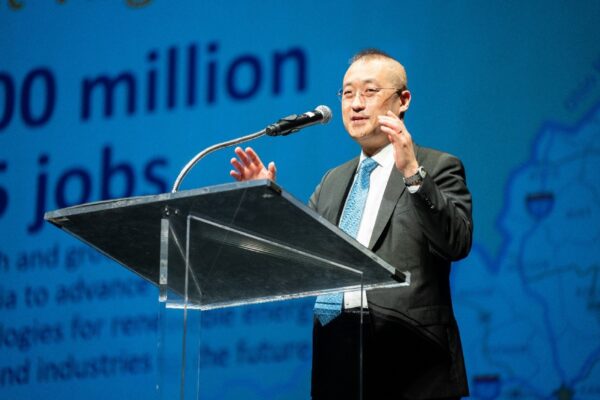[Executive Corner] Achieving Meaningful Growth With ‘Innovation for Impact’
In business, meaningful growth can’t happen without innovation. It’s essential if your organization is to evolve and thrive, and if you’re serious about adding value to people’s daily lives.
With a thirst to drive innovation, and a wealth of knowledge in the area of IoT, I set out to establish and grow my own startup. I’m happy to say I succeeded in this endeavor. However, with the business model being rather narrow – a continuous cycle of making products and then selling them – there were limitations to what I could do.
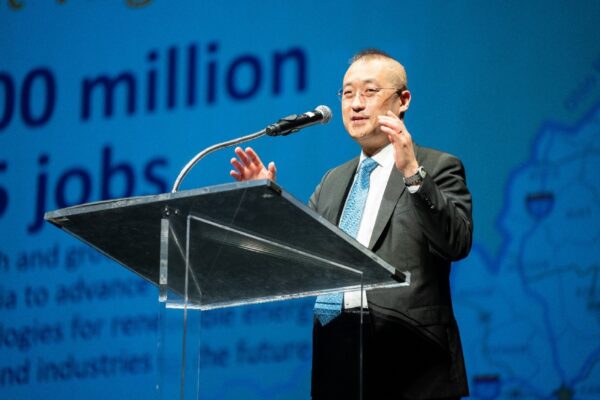
After making the decision to sell my company, I went on to serve as the Presidential Innovation Fellow for Cyber-Physical Systems (CPS), a program run by the White House Office of Science and Technology Policy. It was a valuable and enlightening experience. There, I had the chance to work with leading tech companies to further develop and execute plans for industrial IoT and global smart cities. During my seven years in the U.S. federal government, I realized that there are limits to what governments can do with regard to building smart ecosystems. In the end, private companies are the ones bringing the ideas and concepts of smart solutions and businesses to fruition.
This was when I was first approached by LG Electronics. The company wanted to create a new organization dedicated to the discovery of future businesses. LG offered me this amazing opportunity to head up a team they were in the process of putting together.
I thought deeply about the prospect of joining LG. While the company is universally recognized as a strong player in the consumer electronics field, looking in from the outside, it seemed to lack what some might call, a certain ‘disruptive innovation.’ However, I was intrigued by its determination and desire to uncover future businesses and was confident that the company possessed the agility necessary to change and ‘disrupt.’
Personally, I believe that if there are ten great ideas on the table, seven or eight of them will fail to develop into successful businesses. While many people view this way of thinking about business creation as just plain crazy, LG CEO William Cho is, thankfully, not among them.
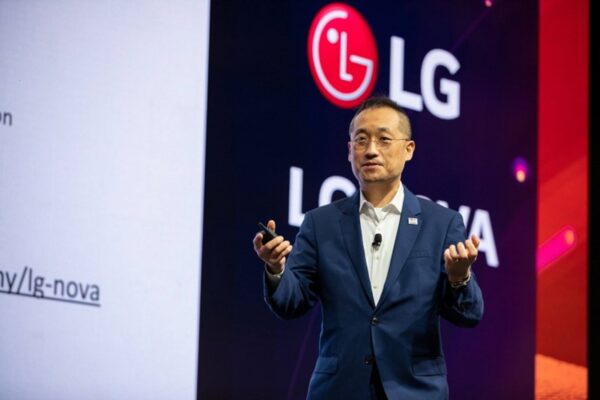
At LG NOVA, an initiative I am grateful to lead, our mission is to establish a community for nurturing, growing and creating new businesses in new market areas for LG. Early in the LG NOVA journey, we realized that entering new businesses – or new business areas – is difficult if you’re relying solely on your internal capabilities.
If LG wants to create new home appliances, it is in a good position to do this internally because it is already a global leader in consumer electronics, with all the necessary expertise and experience at its disposal. LG NOVA’s mandate is to explore entirely new and different concepts, not currently in LG’s wheelhouse. Although there are thousands of engineers and experts working in LG’s R&D centers, their expertise is in products and areas of business that LG is already in. This is why the LG executive team resolved to look outside of LG.
Our goal is to explore new business avenues that would, ultimately, help contribute to the advancement of LG Electronics. Startups, by the nature of their business model and ability to be at the ground-level of market needs, are leading the forefront of innovation. However, startups will not partner with just any firm that approaches them. This is why we needed to show that LG, as a company, has the commitment and capability to go far beyond home appliances and TVs. This is where LG NOVA comes in.
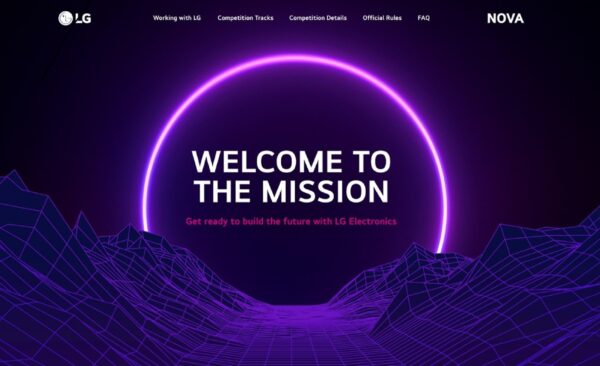
To establish ourselves in the market, we came up with the idea of hosting a grand challenge. In September 2021, we announced the launch of Mission for the Future, an annual, global competition for startups where we could identify innovative technologies and business ideas for a better tomorrow. The participating startups were tasked with developing and presenting technology-based solutions for improving daily life, our communities and the planet. The tech areas we asked them to focus on included clean tech, healthcare and future tech/AI.
To give you an idea of how it works, imagine there is a startup that creates sensors for use in healthcare devices. They might pitch a scenario or concept where their sensors are deployed in TVs to enable innovative new services. Our own business experts, or entrepreneurs in residence (EIRs), would then work with the startup to assess the feasibility of their idea. In many cases, EIRs would work closely with the startup to develop a relevant, but entirely different business idea that could be exciting to both parties. If the idea was deemed to be viable, and in alignment with LG NOVA’s goals and values, a partnership agreement might result and LG NOVA would launch a new business based on the collaboration. This is how a small, fledgling company can set its unique concept on the fast track to becoming a commercialized product.
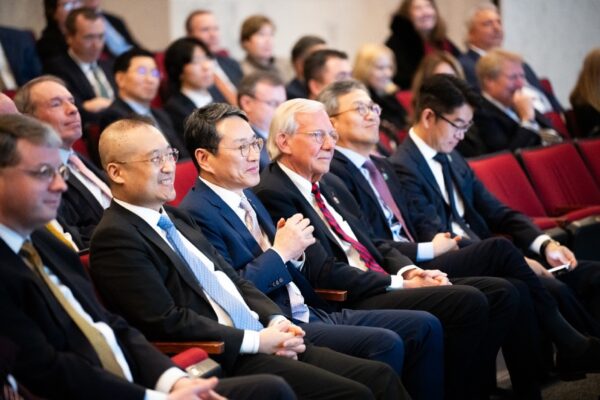
Through this process, and by combining our capacity with the startup’s capacity, we can create a joint business where LG has as much ‘skin in the game’ as the startup. And at every step along the way, LG NOVA will be right there with them, from meeting with investors to introducing and marketing the ‘final product’ to customers. Through LG NOVA, we can create new products and services that can make a positive difference – and do it at a much larger scale than a startup could manage, if it were to go it alone.
I am proud to be a part of LG and to help guide LG NOVA into exciting new territories where boundless innovation awaits discovery. And I can say, without exaggeration, that I truly love this role. Ultimately, I’m striving for Innovation for Impact – which also happens to be the motto and the philosophy of LG NOVA. While there are many, many ways to make a profit, we have committed ourselves to achieving profitability in a meaningful way, and to leaving a lasting, positive impact on the world.
By Dr. Sokwoo Rhee, executive vice president of Innovation for LG Electronics, head of LG NOVA
